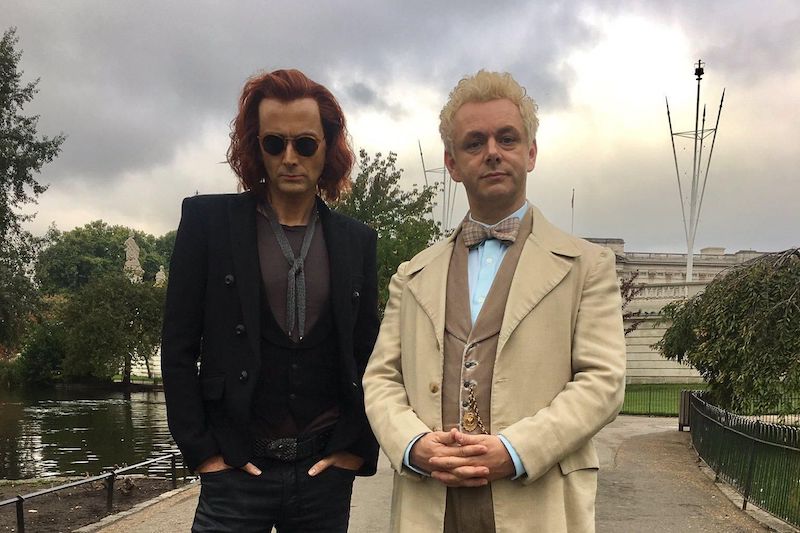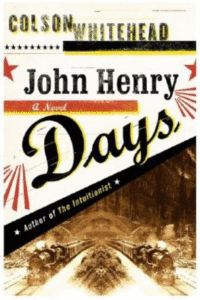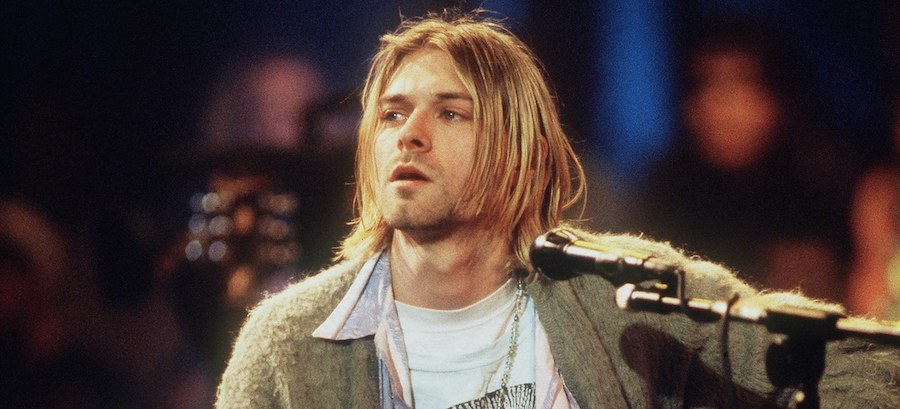In addition to his brilliant prose, deadpan wit, and fearless approach to tackling some of the darkest corners of American history, Colson Whitehead’s literary career has been characterized by audacious versatility. Although many of his works have some element of the extravagant or fantastical, no two are alike. Over a twenty-year writing career, Whitehead has produced an SFF racial allegory (The Intuitionist), a post-apocalyptic zombie story (Zone One), an autobiographical coming-of-age comedy (Sag Harbor), an exploration of 1990s masculinity albeit folk biography (john henry days), a satire of small-town marketing culture (apex hides the hurt), a grimly imaginative slavery epic (the underground railroad), and a harrowing work of fiction realistic (the nickel boys), not to mention a gotham story (the new york colossus) and a memoir about the game of poker (the noble hustle).
If you haven’t stopped reading the work of the (twice!) Pulitzer Prize-winning novelist, who turns fifty-one today, this is where to start.
You are reading: Colson whitehead best books
the intuitionist (1999)
whitehead’s first high-concept noir novel tells the story of lila mae watson, the first black elevator inspector in the history of the elevator inspector department, who becomes embroiled in a mystery involving the two warring factions of the department. .
“…a surprisingly original and polished debut…harnesses an unknown wonder among us, the elevator, and sings its history, its technology, its romance, adding to the novelist’s solid research a brilliant dash of sci-fi fantasy…whitehead he unfolds his tangled underground city with the concise poetry and numinous dignity of the early malamud. the prose is fizzy, bubbly, clean, often amusing in its bursts of mock Mandarin social exposition… Whitehead can try too hard, but usually his writing does what writing should do; he refreshes our sense of the world.”
-john updike (the new yorker)
“… marks the arrival of a dazzling new voice in American fiction. Original, Clever, Magical: Whitehead’s achievement ranks alongside Catch-22, V., The Bluest Eye, and other groundbreaking early novels. And the comparison with these three books is apt: Whitehead shares Heller’s sense of absurdity, Pynchon’s operatic expansiveness, and Morrison’s deconstruction of race and racism…no false notes, no sophomore stumbles, and no indulgences. . Simply lucid, infectious writing, compelling characters and situations, unbiased social commentary, and a gripping story… Whitehead is the real thing: a writer of humor, imaginative prowess, and a fierce intelligence who understands both the intellectual novel of ideas and the popular novel suspenseful… most impressive of all, whitehead creates a completely believable fictional universe that is frighteningly familiar yet also a bit surreal and otherworldly… whitehead has become one of the most promising novelists of his generation.”
-andrew roe(the san francisco chronicle)
the days of john henry (2001)
an imaginative retelling of the 19th century folk figure of john henry, a black railway worker endowed with superhuman strength. Whitehead juxtaposes Henry’s narrative with that of a disgruntled, middle-aged black journalist traveling to West Virginia to cover a celebration of the legendary man.
“chief among the pleasures of john henry days is the enthusiasm with which whitehead plunges into the world of pop-commerce advertising and its paid disseminators… john henry days is a playful, wise, and sumptuously written work , but rarely turns a page. there is very little history to speak of beyond the pageant, the scripted performance, the event of the same name… whitehead writes convincingly about john henry himself, about the first black folklorist to research his legend, and about a blues singer of the mid-century that is induced, through drinking. and dollars, to record a recording of ‘john henry’…unfortunately, in his quest for comprehensiveness, whitehead also offers a running biography of paul robeson…another one of whitehead’s outstanding comedic riffs…over and over Instead, you find passages of wry and generous descriptive prose that are the clearest measure of whitehead’s achievement and promise as a writer… whitehead also succeeds in wringing out of the book’s essentially static structure a beautiful, satisfying ending. The days of John Henry may end up haunting you the way ‘The Ballad of John Henry’ haunts its pages. the novel is a random fugue about the difficulty of manhood in an age that measures a man by what he buys or what he wears, not by his work, or even by his human decency.”
-jonathan franzen (new york times book review)
“…a witty, funny and bittersweet investigation into the importance of folk hero john henry…masterfully composed and steeped in myth and magic, whitehead’s great american novel considers dualities such as nature and civilization, legend and history, black and white, and altruism and greed, while deftly stringing together the absurdities of the information age.”
See Also: Marine Toys for Tots
-donna seaman (list of books)
port sagittarius (2009)
In this hilarious autobiographical coming-of-age novel, Whitehead, using the perpetual mortification of adolescent existence and the desperate quest for reinvention, explores racial and class identity, illustrating the complex rhythms of the adult world.
“whitehead proves to be, among many other things, a poet of the American summer and his aspirations…in whitehead’s hands [the stage], which smells of burning sucrose, is the perfect theater for all the anxieties of puberty: monetary Digestive, racial, sexual, and criminal… this remarkable novel goes far beyond bland musings on clumsy youth… echoes of Melville, one of the first to write about the downfall, echoes in this spirited, elegiac prose. .. whitehead language here is relaxed and playful, a tribute to youth. but ben’s view of life is an affectionate, proud, nervous cry, and a sad triumph of reason.”
-todd mcewen (the guardian)
“now kanye, questlove, santigold, zadie smith and colson whitehead can do black in their own way without fear of being branded pseudo or incognegro… whitehead’s delicious language and sarcastic and intelligent voice suit this teenager who it slowly builds itself… still, with the story meandering like a teenager’s attention, the book feels more like a memoir than a traditional plot-driven novel. it’s easy to walk away thinking that not much happens, whitehead has said so, but sag harbor reflects life, which also has no plot…it’s time we heard more post-black stories like [benji’s].”
-touré (new york times book review)
zone one (2011)
This tribute to the horror and science fiction he devoured in his youth, this tender and thoughtful “zombie literary novel” is about a group of Americans trying to resettle in Manhattan three years after a zombie pandemic will hit the planet.
“…I should have known that 41-year-old macarthur foundation ‘genius’ whitehead wouldn’t do the zombie walk in unison with george romero, but the most amazing thing about zone one is how subtly he reanimates those old bits of the body for a post-9/11 world…readers who wouldn’t normally slip into a novel festooned with putrid flesh might be drawn to this admittedly modern writer who can turn blood into macabre poetry…that grim humor slips through most of this novel, along with hints of topical whitehead satire… the weariness of mark’s soul also infects the novel’s tone and pacing, which offers more praise than suspense… all comes to life in this terrifying and perfectly paced 40-page finale shot through with bleak comedy and bleak lore about the modern age in all its poisonous, polluting fury.”
-ron charles (the washington post)
“idea versus interpretation, however, can be a useful way to overcome reading bias, especially in a book as confusing as colson whitehead’s zone one… whitehead is not your typical zombie singer. he never overloads the zombies with allegory or omits the required gore, but he does what all artists do: he observes, closely, and reports what he sees… he has a tendency to overwrite: the sentences sometimes become so rhythmic that you can’t take them. into their actual meaning as the words wash over you, but he achieves a kind of miracle of tone. a fragile hope pervades these pages, one so painful and tender it is heartbreaking.”
See Also: The Best Books on Bugs – Five Books Expert Recommendations
-patrick ness (the guardian)
the underground railway (2016)
whitehead’s conquering magnum opus, this chronicle of the tribulations of a young slave girl as she makes a desperate bid for freedom in an imaginary antebellum south where the underground is not a metaphor, it is possibly the most famous novel of the 21st century. century.
“…a powerful, almost mind-boggling novel that leaves the reader with a devastating realization of the terrible human costs of slavery. It has the chilling practical power of the slave narratives collected by the Federal Writers’ Project in the 1930s, with echoes of Toni Morrison’s Amada, Victor Hugo’s Les Miserables, Ralph Ellison’s The Invisible Man, and borrowed brushstrokes from Jorge Luis. borges. , franz kafka and jonathan swift… [whitehead] has told a story essential to our understanding of the American past and the American present.”
-michiko kakutani(the new york times)
“The Underground Railroad is not the modern slave narrative it appears to be at first glance. it’s something grander and more penetrating, a dazzling pre-war antimyth in which the fugitive’s now-so-marketable and familiar quest for freedom becomes a kind of Trojan horse. Lurking within are the endless nightmares of the aftermath of slavery: the bloody deceptions, usually pushed aside by film and fiction, that took place between the civil war and civil rights. In Whitehead’s hands, the fugitive’s American story (courage, struggle, reward) becomes a bleak Voltairean odyssey, a subterranean journey through the uncharted ages of unfreedom.”
-julian lucas(new york book magazine)
the nickel boys (2019)
a tense and brutal story of two black teenagers, one idealistic and the other skeptical, trying to survive the horrors of a jim crow era reform school (based on a real life florida institution) The Nickel Boys received rave reviews and Whitehead won his second Pulitzer Prize.
“the nickel boys, a tense and edgy performance, is even more rigorously controlled than its predecessor. the narration is disciplined and the simple and forceful phrases, oars cutting the water. each chapter hits the mark. even if your taste in prose runs toward flourish and embellishment (mine does), the restraint feels meaningful. whitehead behaves seriously and carefully, the butler of painful and repressed stories; his choices on the page can feel both ethical and aesthetic. the coarse language, the clear panel of his prose, lets the stories speak for themselves…while whitehead is outspoken about the barbarity his characters endure, there are few scenes of explicit violence, most of it occurs off stage. and none of the violence is exaggerated. A reverence for the victims can be detected in this refusal to sensationalize their suffering… Whitehead has written horror and apocalypse novels; nothing touches the sinister story of the true stories he conveys here, of a cinder block building still standing, a school that was closed just eight years ago. His crudeness and irresoluteness recall historian Yosef Hayim Yerushalmi’s point that the opposite of forgetting is not simply remembering. it is justice.”
-parul sehgal (the new york times)
“not a moment is wasted, and for someone who writes as vividly as whitehead, there’s elegant economics here too. he uses words carefully, as if he doesn’t want them to get in the way of the truths he’s digging up… whitehead evokes the current insanity of children kept in squalid conditions, of young people lost in a system that doesn’t care about them, and a government more concerned with incarceration than compassion. Whitehead captures how humanity is stripped away… Whitehead, whose latest novel, The Underground Railroad, won the Pulitzer Prize for Fiction, has once again found dark inspiration in an overlooked corner of our nation’s history… If God exists, he turned his back on him long ago. in such abandoned places. In The Five Cent Boys, Whitehead’s novel will not allow us to do the same with the children who survived, or those who were finally freed from an anonymous graveyard that could no longer contain its silence.”
-renée graham (the boston balloon)
See Also: Ranking Author Elizabeth Berg&039s Best Books (A Bibliography Countdown) – Book Scrolling



